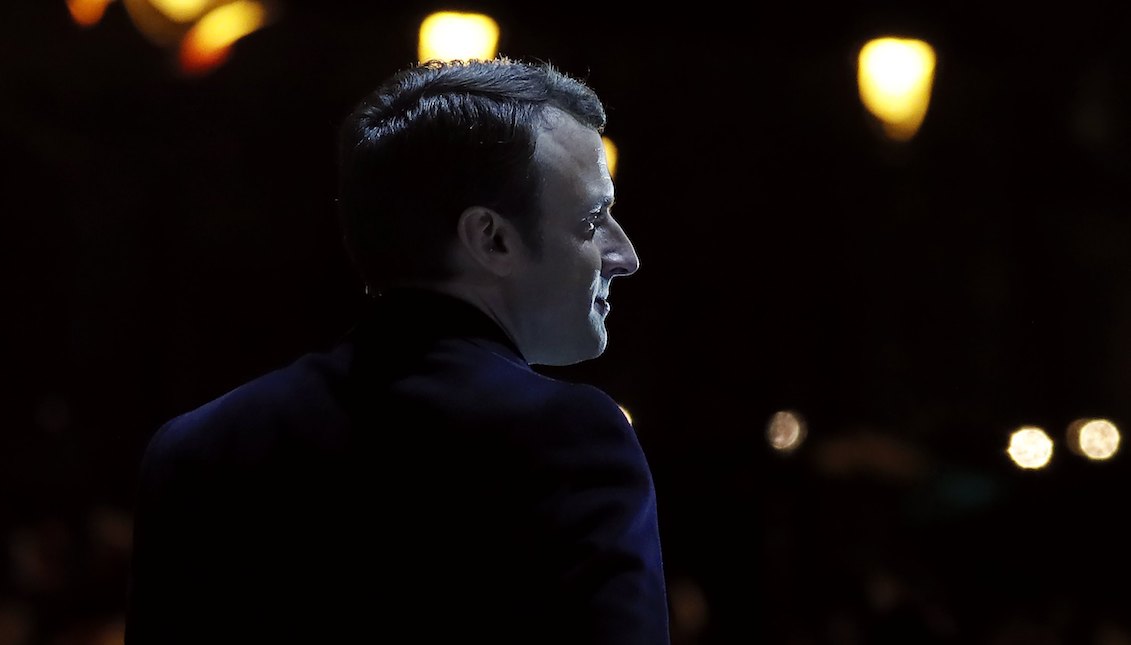
Who is Emmanuel Macron, the new President of France?
Yesterday's elections in France gave the victory to Emmanuel Macron, with 65.5% of the votes, transforming him into the youngest president in the history of…
Born on December 21, 1977 in Amiens, of medical parents, Emmanuel Macron was raised in a familiar atmosphere in the High Pyrenees. He chose his Faith at age 12, when he voluntarily requested baptism, when entering the Jesuit school of The Providence. For Emmanuel Macron "Catholicism brings a discipline of spirit and a willingness to open to the world."
After falling in love with his Latin teacher at age 15, he was able to marry her at the age of 29, when she was 53. He plays the piano and plays tennis for hobby.
After graduating with honors from the Henri-IV school in Paris, he was able to enter the Ecole Normale Supérieure of Social Sciences, obtaining his bachelor's degree and later a diploma in philosophy at the University of Paris-Nanterre. He graduated from the Institute for Political Studies in Paris at the age of 24 (2001), and studied at the ENA in Strasbourg between 2002 and 2004, during which he completed an internship at the embassy in Nigeria.
In 2004, at the end of his studies, he joined the General Inspectorate of Finance, becoming one of the protégés of Jean-Pierre Jouyet (currently General Secretary of the Office of President François Hollande).
In August 2007, he was appointed assistant rapporteur for the Commission for the Liberation of French Growth. During this period he forges important relationships with companies such as Nestlé, Rothschild and Co. and Pfizer.
In Rothschild he began his career as an investment banker, thanks to his contacts with François Henrot and his militancy in the election of then-President Nicolas Sarkozy.
By 2010, he became a banking associate, after working on the recapitalization of Le Monde newspaper and the purchase of Siemens IT by Atos, this being his first achievement at a very young age.
In 2012, thanks to his management in the purchase of a subsidiary of Pfizer by Nestlé, Macron became a millionaire. From 2009 to 2013, and according to the Transparency Authority of Public Life, Emmanuel Macron would have earned more than 2.8 million gross euros.
After becoming involved in the political circles of Paris during his stay in the Faculty of Political Sciences, he began to serve in the Socialist Party from the age of 24, collaborating with foundations such as the Jean Jaurès Foundation since 2006.
He met François Hollande in 2006 and joined his team from 2010. For the 2011 Socialist presidential primary, young Macron was already the economic analyst for the candidate, which would guarantee his first public position as deputy general secretary of the Hollande administration in May 2012. During this administration he developed programs such as tax credit for competitiveness and employment, and the pact of responsibility and solidarity.
After a professional break, to follow academic specialization, he obtained a position of researcher in political economy in the London School of Economics. Afterwards, he is named Minister of Economy on August 26, 2015, under the supervision of the Prime Minister Manuel Valls.
During his administration he tried to implement measures of economic growth within the framework of the labor law, the modernization of social dialogue and the security of professional affairs. After strong opposition to his proposals within the economic cabinet, Emmanuel Macron decides to resign from his post.
On April 6, 2016 in Amiens, he founded the political movement "En Marche!", considered "trans-partisan", defined as a "right and left" movement, assuming his position as a candidate for the presidential election.
RELATED CONTENT
After announcing his candidacy on November 16, 2016, Macron rejects the invitation to participate in the primaries of the left, which causes great discontent within the socialist ranks.
Macron then competes with the candidates for the primaries, who demand the publication of his campaign donors, presuming some conflict of interest for his relations with the public banks.
The public scandal of his opponent François Fillon for embezzlement, paved the way for the young candidate, who would publish his expected presidential program, called "My contract with the nation", on March 2, 2017.
After winning the first round of elections, Macron set out to confront the National Front candidate, Marine Le Pen, narrowly according to national analysts.
During the last week before the final elections, the movement En Marche! was the victim of a cyber attack that leaked several personal and campaign documents. According to Japanese security firm Trend Micro, Macron's campaign would have been attacked by a group of Russian hackers called Fancy Bears, previously accused of interfering in Hillary Clinton's US presidential election.
But it was the performance of his opponent Marine Le Pen in the presidential debate, which would have displaced Macron's hack and would have handed him the presidency on a silver platter.
On May 7, 2017, Emmanuel Macron was elected president of the French Republic, with 65.5% of the votes.
Considered by some observers as social-liberal (social-democrat in other cases), Macron has positioned himself as a spokesman for the balance in public finances through the free market, multiculturalism and the European project.
But for the French, who have a great tradition of bipartisanship, who separates from the extremes ends up always being "right": "a classic that has materialized in the repeated attempts of centrist candidates for decades. Seoul Valéry Giscard D'Estaing achieved the election thanks to this position, and his policy was always that of a right-wing man", says political scientist Luc Rouban.
Emmanuel Macron will take office on May 14, according to the schedule of the Presidency of the Republic.










LEAVE A COMMENT: